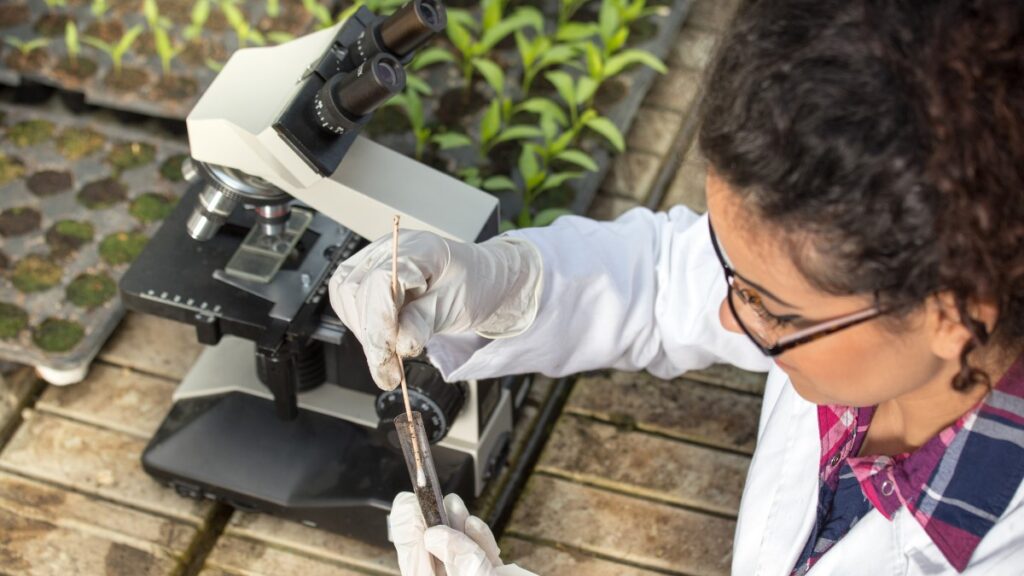
Biotechnology refers to techniques used by scientists to modify deoxyribonucleic acid (DNA) or the genetic material of a microorganism, plant, or animal in order to achieve a desired trait. In the case of foods, genetically engineered plant foods are produced from crops whose genetic makeup has been altered through a process called recombinant DNA, or gene splicing, to give the plant desired traits. Genetically engineered foods are also known as biotech, bioengineered, and genetically modified, although “genetically modified” can also refer to foods from plants altered through methods such as conventional breeding. While in a broad sense Biotechnology refers to technological applications of biology, common use in the U.S. has narrowed the definition to foods produced using recombinant DNABiotechnology refers to the techniques that allow scientists to modify DNA, the genetic material of living things. New plant varieties have been developed using Biotechnology, and on May 18, 1994, the Food and Drug Administration announced it had determined a new tomato developed through Biotechnology is as safe as tomatoes bred by conventional means. This was the first time FDA had evaluated a whole food produced by Biotechnology, by which plant improvements can be made more precisely than through traditional cross-breeding.
In the Federal Register of May 29, 1992 (57 FR 22984), FDA published its “Statement of Policy: Foods Derived from New Plant Varieties” (the 1992 policy). The 1992 policy clarified the agency’s interpretation of the application of the Federal Food, Drug, and Cosmetic Act with respect to human foods and animal feeds derived from new plant varieties and provided guidance to industry on scientific and regulatory issues related to these foods. The 1992 policy applied to all foods derived from all new plant varieties, including varieties that are developed using recombinant deoxyribonucleic acid (rDNA) technology. This site refers to foods derived from plant varieties that are developed using rDNA technology as “bioengineered foods.”
In the 1992 policy, FDA recommended that developers consult with FDA about bioengineered foods under development; since issuance of the 1992 policy, developers have routinely done so. In June 1996, FDA provided additional guidance to industry on procedures for these consultations (the consultation procedures). These procedures describe a process in which a developer who intends to commercialize a bioengineered food meets with the agency to identify and discuss relevant safety, nutritional, or other regulatory issues regarding the bioengineered food and then submits to FDA a summary of its scientific and regulatory assessment of the food; FDA evaluates the submission and responds to the developer by letter.
In the Federal Register of January 18, 2001 (the premarket notification proposal; 66 FR 4706, available as text and 193 KB PDF), FDA issued a proposed rule that would require that developers submit a scientific and regulatory assessment of the bioengineered food 120 days before the bioengineered food is marketed. In the premarket notification proposal, FDA recommends that developers continue the practice of consulting with the agency before submitting the required premarket notice.
Most bioengineered plants are considered “regulated articles” under regulations of the Animal and Plant Health Inspection Service (APHIS) of the U.S. Department of Agriculture (USDA). At some stage of research and development of a regulated article that is intended for use as a food crop, a developer requests from APHIS a determination of the article’s regulatory status.
The safe use of pesticidal substances is regulated by the Environmental Protection Agency (EPA). Thus, a bioengineered food that is the subject of a consultation with FDA may contain an introduced pesticidal substance also known as a plant-incorporated protectant (PIP) that is subject to review by EPA.
Our Firm
The FDA attorneys and FDA consultants of C. Humphrey & Associates, P.A. represents domestic and international Biotechnology Companies. Our FDA law firm provides regulatory representation regarding a range of regulatory food law issues before federal and state agencies and courts involving the U.S. Food & Drug Administration (FDA), the United States Department of Agriculture (USDA) and the Environmental Protection Agency (EPA). Our FDA law firm provides regulatory counsel to clients in all phases of food product development and marketing.
Our FDA law firm counsels clients regarding compliance with a variety of statutory and regulatory requirements and guidance documents covering Biotechnology Companies including the following issues:
- Notices for Biotechnology products and bioengineered foods
- The purpose or the intended technical effect of the genetic modification
- The source, function and stable incorporation of introduced genetic material
- Analytical studies to determine whether the genetic modification had any effects on the composition of he food (such as the levels of important nutrients and naturally occurring toxicants)
- The safety of new or modified substances (for example, proteins, carbohydrates, fats, or oils) in the food Mandatory and voluntary submissions
- Nutrient content claim, health claim, and qualified health claim petitions
- FDAMA notifications for nutrient content claims and health claims
- Citizen Petitions
- GRAS Notifications
- Food Additive and Color Additive petitions
